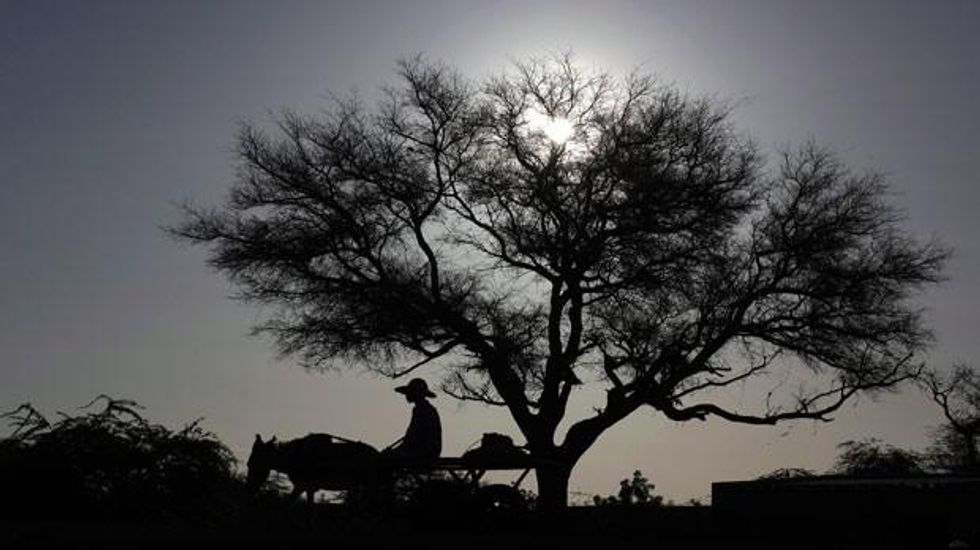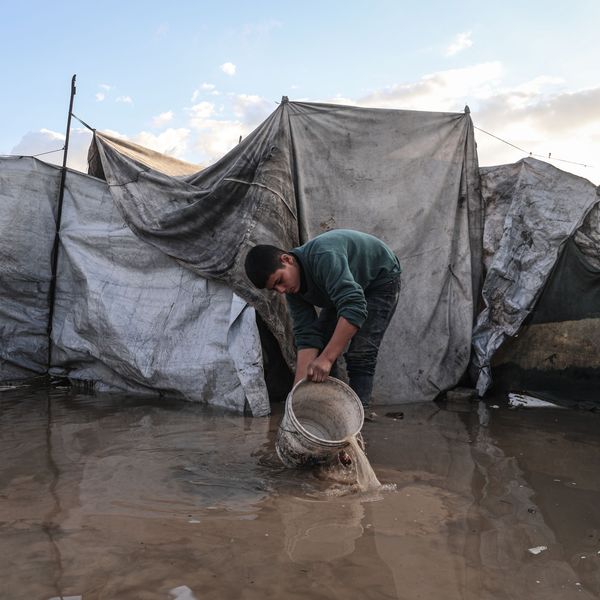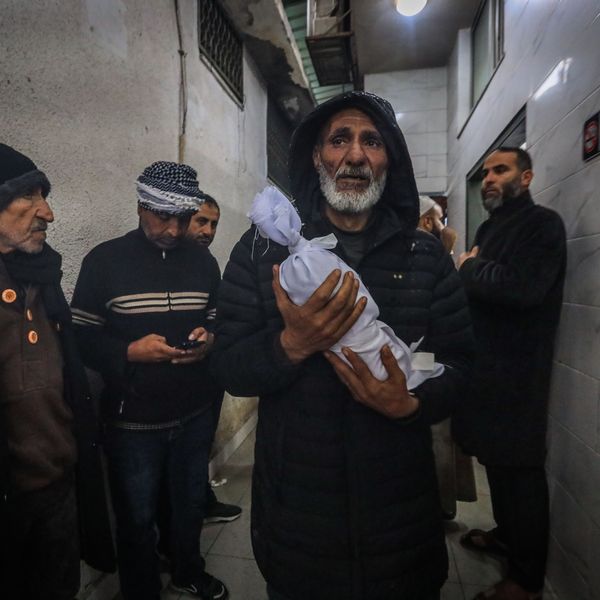Tragedy in Niger's Sahara as 92 Migrants Found Dead
Local experts believe the deceased, found along a common migrant route, to be victims of human trafficking

The deceased, who were likely en route from Niger to Algeria, died of dehydration after their vehicle broke down in the desert, the BBC reports.
Writing slates were found in the luggage of the dead, suggesting the 52 children who perished were Qu'ranic students traveling to Algeria, Reuters reports.
"This is extremely difficult and the most horrible thing I have ever seen," said Almoustapha Alhacen, who assisted in the rescue effort and lives in Arlit, a uranium mining town 50 miles from the scene of the tragedy. "These are women and children; they were abandoned and left to die."
The Guardian reports that local experts believe the deceased to be victims of human trafficking.
Niger lies along a route often traveled by migrants making their way from sub-Saharan Africa to North Africa and Europe.
The dangers African migrants face along their journey have grabbed global attention in the wake of a series of recent tragedies, including the capsize of a boat carrying migrants to the Italian island of Lampedusa in early October that resulted in at least 365 deaths.
Critics have long charged that anti-migrant policies in North Africa and Europe contribute to the deaths of people forced to migrate by poverty, food crises and global inequalities.
John Ging, director of the UN Office for the Co-ordination of Humanitarian Affairs, estimates that 80,000 migrants cross the Sahara desert through Niger.
_____________________
An Urgent Message From Our Co-Founder
Dear Common Dreams reader, The U.S. is on a fast track to authoritarianism like nothing I've ever seen. Meanwhile, corporate news outlets are utterly capitulating to Trump, twisting their coverage to avoid drawing his ire while lining up to stuff cash in his pockets. That's why I believe that Common Dreams is doing the best and most consequential reporting that we've ever done. Our small but mighty team is a progressive reporting powerhouse, covering the news every day that the corporate media never will. Our mission has always been simple: To inform. To inspire. And to ignite change for the common good. Now here's the key piece that I want all our readers to understand: None of this would be possible without your financial support. That's not just some fundraising cliche. It's the absolute and literal truth. We don't accept corporate advertising and never will. We don't have a paywall because we don't think people should be blocked from critical news based on their ability to pay. Everything we do is funded by the donations of readers like you. Will you donate now to help power the nonprofit, independent reporting of Common Dreams? Thank you for being a vital member of our community. Together, we can keep independent journalism alive when it’s needed most. - Craig Brown, Co-founder |

The deceased, who were likely en route from Niger to Algeria, died of dehydration after their vehicle broke down in the desert, the BBC reports.
Writing slates were found in the luggage of the dead, suggesting the 52 children who perished were Qu'ranic students traveling to Algeria, Reuters reports.
"This is extremely difficult and the most horrible thing I have ever seen," said Almoustapha Alhacen, who assisted in the rescue effort and lives in Arlit, a uranium mining town 50 miles from the scene of the tragedy. "These are women and children; they were abandoned and left to die."
The Guardian reports that local experts believe the deceased to be victims of human trafficking.
Niger lies along a route often traveled by migrants making their way from sub-Saharan Africa to North Africa and Europe.
The dangers African migrants face along their journey have grabbed global attention in the wake of a series of recent tragedies, including the capsize of a boat carrying migrants to the Italian island of Lampedusa in early October that resulted in at least 365 deaths.
Critics have long charged that anti-migrant policies in North Africa and Europe contribute to the deaths of people forced to migrate by poverty, food crises and global inequalities.
John Ging, director of the UN Office for the Co-ordination of Humanitarian Affairs, estimates that 80,000 migrants cross the Sahara desert through Niger.
_____________________

The deceased, who were likely en route from Niger to Algeria, died of dehydration after their vehicle broke down in the desert, the BBC reports.
Writing slates were found in the luggage of the dead, suggesting the 52 children who perished were Qu'ranic students traveling to Algeria, Reuters reports.
"This is extremely difficult and the most horrible thing I have ever seen," said Almoustapha Alhacen, who assisted in the rescue effort and lives in Arlit, a uranium mining town 50 miles from the scene of the tragedy. "These are women and children; they were abandoned and left to die."
The Guardian reports that local experts believe the deceased to be victims of human trafficking.
Niger lies along a route often traveled by migrants making their way from sub-Saharan Africa to North Africa and Europe.
The dangers African migrants face along their journey have grabbed global attention in the wake of a series of recent tragedies, including the capsize of a boat carrying migrants to the Italian island of Lampedusa in early October that resulted in at least 365 deaths.
Critics have long charged that anti-migrant policies in North Africa and Europe contribute to the deaths of people forced to migrate by poverty, food crises and global inequalities.
John Ging, director of the UN Office for the Co-ordination of Humanitarian Affairs, estimates that 80,000 migrants cross the Sahara desert through Niger.
_____________________

